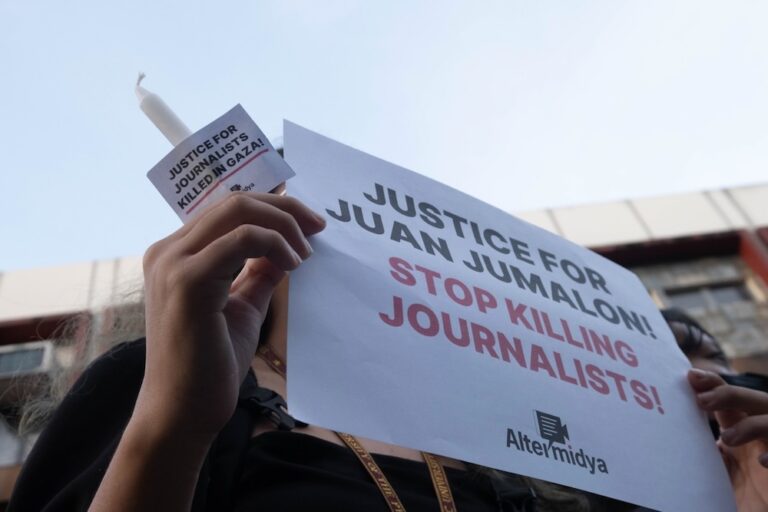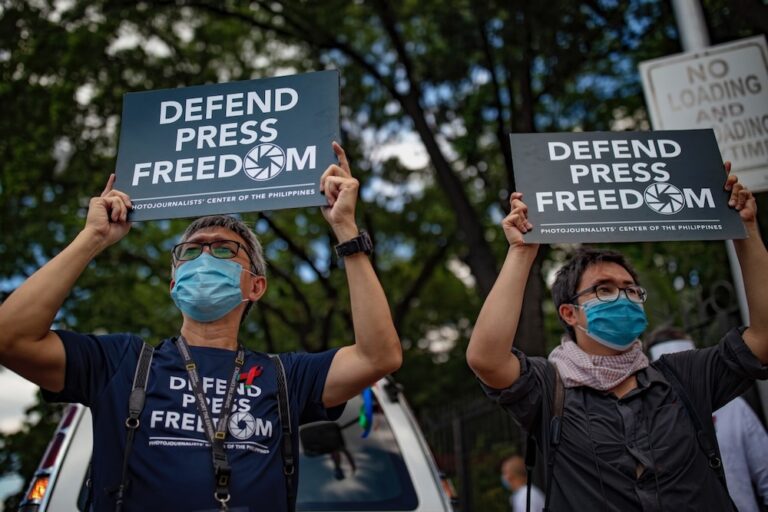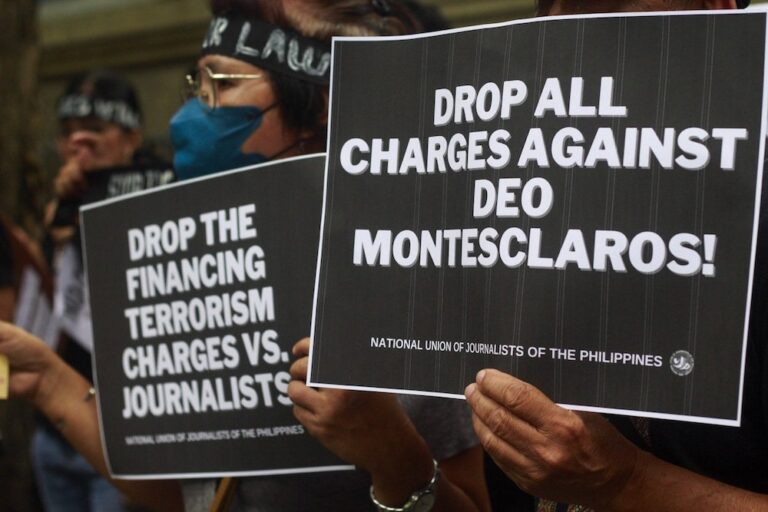(CMFR/IFEX) – A resolution by the Department of Justice (DOJ) on 16 January 2007 ordered the reopening of the murder case against the suspected killers of radio broadcaster Rolando Ureta, who was killed on 3 January 2001 in Aklan, a province south of Manila. The defendants’ alibis were insufficient, said the DOJ in reversing the […]
(CMFR/IFEX) – A resolution by the Department of Justice (DOJ) on 16 January 2007 ordered the reopening of the murder case against the suspected killers of radio broadcaster Rolando Ureta, who was killed on 3 January 2001 in Aklan, a province south of Manila.
The defendants’ alibis were insufficient, said the DOJ in reversing the 6 December 2004 dismissal of the murder case against them. It directed the Aklan provincial prosecutor to file the appropriate charges against Amador Paz and Jessie Ticar.
“I’m very happy. For six years I have been praying for something to happen with the case. This is an answered prayer,” Emely Ureta, widow of the slain journalist, said.
The murder charge against Paz and Ticar was filed by the Aklan Provincial Police office on 24 September 2004. Gerson Sonio, the lone witness to the killing, testified that he saw Paz driving a motorcycle in tandem with Ticar, who shot Ureta three times.
Ureta was reporting and commenting on illegal gambling and illegal drugs in his community before he was killed, and had been receiving death threats as early as 2000.
Third Assistant Prosecutor Apolinar Barrios rejected the testimony of Sonio and dismissed the complaint on 6 December 2004 for “lack of probable cause”.
The witness’s father, Perlito Sonio, and his uncle, Diego Masangya, had filed separate affidavits claiming that Sonio was in Iloilo City, some 200 kilometres away from Aklan, on the day of the killing and could not have possibly witnessed it.
The prosecutor also said that the witness did not indicate his profession as a balut (fertilized duck eggs) vendor and his associations with Anthony Gerson, to whom he was said to have remitted money from the sold balut. These omissions, according to the prosecutor, tainted the credibility of Sonio’s testimony.
Emely filed a motion for reconsideration on 4 January 2005, containing the affidavits of additional witnesses supporting Sonio’s testimony. It was immediately denied on 10 February 2005.
The local police and Emely filed an appeal for the reversal of the complaint’s dismissal on 27 April 2005, alleging grave abuse of discretion by the investigating prosecutor.
They argued that the respondents’ alibis were not sufficient and upheld Sonio’s categorical identification of the suspects as well as his “positive” testimony over the counterclaims of the elder Sonio and Masangya. They also said that inconsistencies regarding minor details not related to the commission of the crime did not affect the weight or the veracity of the witness’s claims.
“Weighed against the denials and alibis of respondents, said witness’ affirmative testimony is stronger than a negative one,” the DOJ resolution stated.
The DOJ also found no probable cause for Sonio to maliciously fabricate stories against the accused.
“The record is bereft of any evidence showing that Sonio was prompted by ill-will in testifying against said respondents. Absent the most compelling reason, it is inconceivable why a witness would openly concoct a story that would send an innocent man to jail,” the DOJ resolution stated.
Paz and Ticar will now stand trial for the killing of Ureta.


